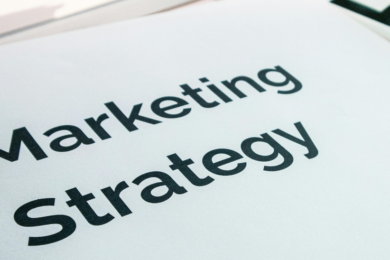Five Marketing Predictions for 2025
Jan 2, 2025By this point, most marketers have become accustomed to the never ending whirlwind of change and evolution in the digital…

Hi, I am James, a Key Account Manager at Extramile Digital (EMD). It goes without saying that I, just as the rest of the EMD team, start to salivate as soon as a new AI feature or tool is introduced to online search. It’s an exciting and challenging time for us in the world of search, but above all it’s an opportunity for us to extrapolate useful features and show them to you as potential wins for you and your customers.
AI-powered browsers such as ChatGPT Atlas by OpenAI and Comet by Perplexity AI are changing the way users interact with your website, especially in the B2B space. For B2B companies and B2B Digital Marketing Agencies like Extramile Digital (hi, happy to help you 👋), it means re-thinking how your website content, pages, and user journey work in a browser that acts as an intelligent assistant.
I’ve written this blog to help you understand and explore how these new AI powered browsers work, what it means for your B2B website, and how you can stay ahead of your competition by thinking differently about your content for the new AI-led search and interaction.
Traditionally, a browser is a window to the world wide web: you type in a web address, and a browser finds you a web page for you to browse at your leisure. Browsers you’ll be familiar with include Chrome, Safari, Firefox. But now OpenAI, the brains behind ChatGPT, have built a browser around AI and an AI plug-in bolted on to it.
Atlas, OpenAI’s new browser, is “a browser with ChatGPT built in”. You can open an “Ask ChatGPT” sidebar to the right of the web page and ask questions about the page you’re on, instruct it to summarise content, or have ChatGPT take actions on the page for you, but more on that later.
Comet by Perplexity is another AI-powered browser with a built-in Agent and AI assistant that summarises content, groups tabs and automates tasks.
This is exciting, and offers lots of opportunities for us, but…
You and I both know, the user journey is shifting. Instead of potential customers arriving on your website via a Google search, scrolling to find a solution to their problem and converting, we are now in a world where the browser, such as OpenAI’s Atlas, is proactively interacting with your site: summarising your content, comparing your page with competitors, extracting insights, even filling out contact forms on their behalf!
This means that your B2B web pages need to work for browsers such as Atlas as much as they do for people – something we here at Extramile Digital are always testing, experimenting and learning so that we can use our findings to help your business in this ever-changing search landscape.
This is fascinating, but…
This is an important question, and here are some of the key behaviours I believe matter most for B2B companies:
As I mentioned earlier, both Atlas and Comet browsers include a sidebar that acts like an internal search engine for your website. It can summarise your website content, search your website for specific services, fill out contact forms and send them – the way we think about your website must change.
Similarly, Atlas supports “browser memories” (optional) so the AI remembers what you’ve browsed and brings it into later conversations. The opportunity to present your offering later on in a conversation with the browser is powerful – this is very exciting as you have a number of opportunities to have your product or service get recommended again as your potential customer moves through the buyer funnel.
This is great James, but what are the implications for my B2B web pages?
Well, from an SEO point of view, we need to consider that your website will be visited not just by a person who reads the text, but by an AI agent that will skim the page and pull useful summaries. If your content is unclear, unfocused and not understandable to the reader (or the “agent”), the AI agent may misinterpret your value proposition or skip you entirely. We do not want this, and at Extramile Digital, we will ensure this doesn’t happen!
Previously, I mentioned that these AI powered browsers don’t just show you stuff, oh no, they can do stuff. For example, Comet’s AI assistant can perform tasks like unsubscribing you from email lists, or generating price comparison services with competitors.
Atlas offers “agent mode” for premium users, where ChatGPT can open tabs, click around the website on your behalf, adding items to baskets and making transactions – read that back again, slowly. This is game changing. Are you making your transnational process as quick and easy as possible?
Even if you don’t have ecommerce features, the “agent mode” can fill in contact information on forms, even make calls on your behalf.
Moving forward, myself and the Extramile Digital SEO team believe that your B2B website can no longer be a passive endpoint anymore, it must be part of a workflow that the browser-agent will try to navigate. For you as the B2B business owner or marketer, this means processes such as “contact us”, “request demo”, “download white paper” need to be agent-friendly too: clear, machine-readable, with minimal friction. Again, if you need advice on this, we have you covered.
With all that said, we absolutely need to think differently now. When an AI agent visits your web site (and it will) it doesn’t have hours. It will scan, summarise and act faster than any of your customers can. The AI agent will read your page and present a top-level answer drawn from your content (if it’s well structured) to your potential customer on the page.
That’s why it’s super important that your content is well structured with clear headings, easy to scan language, and clear enough for all visitors to understand. If not, the agent and your potential customer will find a competitor that does the above better.
There’s lots to consider here…
I’ve made a list of a number of practical actions you and the team at Extramile Digital can help implement, to ensure your content and website are “AI-browser ready”!
• Use a well-structured content hierarchy that spells out what you do, who you serve, and what the benefit is. We can help you do this.
• The first few paragraphs of your page should act as a mini-summary (for both human and AI viewers) – I’ve done this exact thing with this blog piece.
• Use bullet lists (like this one) or short sections for key points. AI Agents love this, it allows the AI to present these points quickly to your potential customer. You can see I’ve added lots of bullet lists to this post.
Now, traditionally SEO has been focused on ranking for keywords and earning clicks from human users scrolling search results. But with AI search and agent browsers, the journey is changing, right now.
Search engine algorithms now read and summarise content before showing it to users. This means your site structure, CTAs, and internal links must be machine-readable, so these AI “agents” can explore your content in their summaries and recommendations.
You need to think about how an AI browser navigates around your page. Make sure your call-to-actions (download, contact, demo trials) are easily machine-readable (clear button text, minimal pop-up friction).
Then, consider how the page may be summarised: include a short “key take-aways” or Too-Late-Didn’t-Read (TLDR) section like I have at the top of this piece so that an agent can quickly scan and show to potential customers:
• Internal linking: This is super important. Link to other pages in your website logically (example: Services → Use-cases → Case studies) so the agent can navigate your site easily and find those solutions for your website visitor.
• External linking: This point can be forgotten, but I advise that you provide credible, authoritative external links (to industry stats, research) so that agents see your page as part of a network of trust.
As mentioned earlier, these are just a few key points you need to consider moving into this complex, yet opportunity filled search environment. But you’re not alone in this, we are here to help you win.
At Extramile Digital, we actually specialise in AI-ready SEO for B2B clients. Here’s how we will help you and your business:
• We will audit your website from both human-user and AI-browser perspectives: messaging clarity, structure, semantic markup, internal linking.
• We’ll focus on designing content clusters that align not just with your buyer personas but with how AI browsers summarise and present information (so you’re featured not just in search, but in those new AI-driven selections).
• We’ll also track AI interaction on your page and report on outcomes, and we will keep you ahead of the curve: as AI-browsers evolve (remember Comet’s agent tasks and Atlas’s “browser memories”), we adapt your content strategy accordingly.
Three years ago, the idea that search would have evolved into where we are today would have been a hard sell, but this isn’t sci-fi….it’s happening now.
AI browsers like Comet and ChatGPT Atlas WILL change how B2B buyers and decision-makers interact with your website. If you treat your website as “just another page” you risk being part of the landscape that gets summarised and skipped over. But if you proactively optimise for clarity, structure, agent-friendly journeys, and human-friendly, helpful content, your business will stand out.
So yeah, it’s a bit like preparing your website for both humans and their new AI-assistant buddies.
I think that’s very exciting, as do my colleagues at Extramile Digital. If you’re ready to explore how to make your site thrive in this new AI-led era of search, we need to chat.

By this point, most marketers have become accustomed to the never ending whirlwind of change and evolution in the digital…

In high-stakes sectors like defence and aerospace, effective marketing is about building trust, demonstrating unwavering reliability and navigating a unique…

Staying top of mind with decision makers is more challenging than ever in competitive B2B sectors. Prospects are flooded with…

As 2025 draws to a close, it’s time to reflect on how Google’s confirmed SEO algorithm changes played out and…